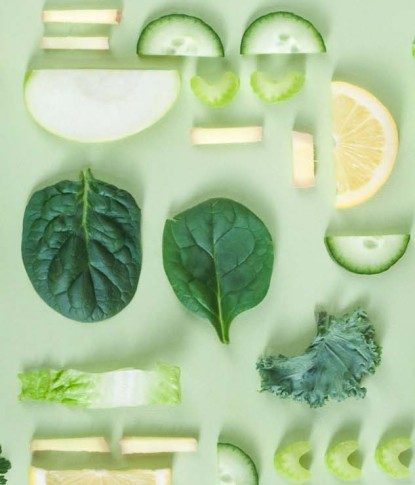
The amount of information out there on acne and oily skin is overwhelming. But even if you had the time for some research, how do you separate the facts from the fiction?
Knowing the truth about acne and oiliness can help you get closer to clearer skin. So here are some common myths you should know about…
Healthy skin starts from the inside out. Let our experts help you pinpoint the specific nutrients you need for healthier looking skin. Start Consultation.
Myth #1: Moisturiser makes acne and oily skin worse
Moisturising oily and acne-prone skin makes it even oilier, right? Wrong. in fact drying out oily skin by not moisturising could make your body produce even more oil to compensate.
Moisturising is part of a good skincare routine, whatever your skin type. Aim to moisturise twice a day after cleansing – look for a light moisturiser developed for oily skin and acne (products labelled non-comedogenic will also help prevent blackheads forming).
Myth #2: Oily skin and acne are the result of bad hygiene
If oily skin and spots were caused by dirty skin we could fix the problem simply by washing repetitively. But the real truth is cleansing your skin too much can make the problem worse. That’s because, like avoiding moisturising, over-washing and scrubbing can strip away too much of your natural oils, making your skin produce more.
Stick to cleansing twice a day to remove excess oil and the bacteria and dead skin cells that cause acne. Use a gentle cleanser that contains a little benzoyl peroxide or salicylic acid. Also avoid cleansers and toners containing alcohol as they can strip oil from your skin.
Myth #3: Greasy foods make oily skin and acne worse
There’s still a lot of conflicting information out there about diet and oily skin and acne. These days, however, experts are more interested in how sugar affects the skin rather than high-fat foods. Eating too much sugar may well be linked with oily skin and acne, they say.
That’s no excuse for bingeing on pizza and chips. Choosing healthy foods is the best way to eat, whatever your skin type, because good nutrition supports your overall health. So try to follow a balanced diet and include foods high in omega-3 fatty acids, especially if you have acne-inflamed skin (omega-3s – found in oily fish – may limit the production of inflammatory chemicals responsible for breakouts). If you struggle to eat enough fish or want to increase your omega 3 intake, try supplementing with a high quality omega-3 fish oil.
Myth #4: Chocolate makes oily skin and acne worse too
People used to think chocolate was bad for your skin. Then experts said it wasn’t linked with oily skin and acne after all. But now we know the truth may be somewhere between the two. And it may all depend on what type of chocolate you eat.
Milk chocolate contains two things that are currently thought to make acne and oily skin worse, namely milk and sugar. But dark chocolate doesn’t contain milk, plus varieties that have a cocoa content of 70% or higher contain less sugar (the higher the cocoa content, the lower the amount of sugar).
Myth #5: Adult acne is a female problem
According to the NHS about 80% of people aged 11 – 30 are affected by acne. This includes about 5% of women and 1% of men aged 25 or older. So while more women are affected than men, it’s not exclusively a female thing.
In fact, the hormones involved in oily skin and acne are often referred to as ‘male’ hormones, or androgens, as men produce higher levels of them than women. To lower your androgen levels, try having less sugar, caffeine and alcohol.
The bottom line: There’s lots you can do to improve oily skin and acne, including eating healthily and having a first-rate skincare routine.
Try our brand new Hair, Skin and Nails product made with marine collagen and designed to support healthy skin.




